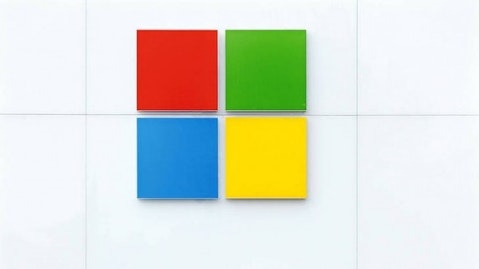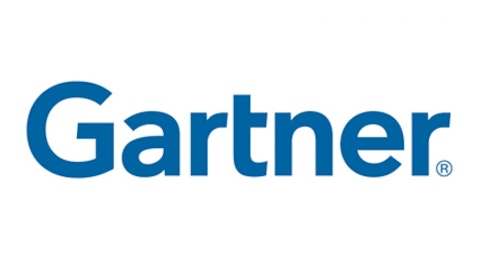Shares of Microsoft Corporation (NASDAQ:MSFT) jumped over 1% earlier in the week — a notable move for such a monstrous company, especially given the selloff in the broader market. The gain was prompted by the company’s deal with long-time rival Oracle Corporation (NASDAQ:ORCL).
Going forward, Microsoft Corporation (NASDAQ:MSFT) will be a major cloud services supplier for Oracle’s enterprise software. Ultimately, that push into the cloud could be enough to offset the decline of the company’s Windows business.
The death of the PC
Alongside news of Microsoft’s partnership with Oracle Corporation (NASDAQ:ORCL), research firm Gartner released another report on the ongoing decline of the traditional PC. Gartner now expects sales of traditional PCs (laptops, desktops) to decline about 10% in 2013, with consumers increasingly opting for mobile devices.
Microsoft Corporation (NASDAQ:MSFT)’s efforts to get into the mobile market have largely fallen flat. Windows 8 — intended to serve as a hybrid operating system for both tablets and PCs — has been heavily criticized, while Windows RT tablets have sold poorly.
Given the failure of Microsoft’s mobile strategy, Gartner now expects Google’s Android to largely replace Windows as the world’s dominant operating system by 2017.
This seems like a particularly bad development for Microsoft Corporation (NASDAQ:MSFT) shareholders. In the last quarter, the company’s Windows division accounted for nearly a quarter of Microsoft’s revenue and profit.
Microsoft’s Azure
But, despite the fact that Microsoft Corporation (NASDAQ:MSFT) could be on the verge of losing a quarter of its business, not all investors are deterred. In April, hedge fund ValueAct bought up about $2 billion worth of Microsoft stock, with a 3-5 year time horizon.
As ValueAct explained, the basic PC operating system is becoming less relevant. Increasingly, cloud-based software is replacing local solutions, and Microsoft Corporation (NASDAQ:MSFT)’s Azure puts the company in a great position.
With Azure, Microsoft is one of the biggest players in the public cloud space. The company claims that half of the fortune 500 uses Azure to some extent.
Using Azure, software developers can host their applications on Microsoft Corporation (NASDAQ:MSFT)’s servers — making them available directly over the Internet.
That isn’t to say that Microsoft has hit a guaranteed home run with Azure. Unlike Windows — which still, for the most part, has a monopoly on the traditional PC — Azure faces many major competitors.
Most notably, Amazon.com, Inc. (NASDAQ:AMZN), with its Amazon Web Services (AWS) and Google Inc (NASDAQ:GOOG) with Compute Engine. Amazon.com, Inc. (NASDAQ:AMZN) and Microsoft Corporation (NASDAQ:MSFT) have been fighting a price war in recent months, while Google Inc (NASDAQ:GOOG) is making a strong push into the market.
Still, the deal with Oracle could give Microsoft’s Azure the edge. Forrester analyst James Staten concluded as much in a recent blog post, writing that the Oracle Corporation (NASDAQ:ORCL) deal gives Microsoft Corporation (NASDAQ:MSFT) a “clear competitive advantage” over its rivals like Amazon.com, Inc. (NASDAQ:AMZN).






